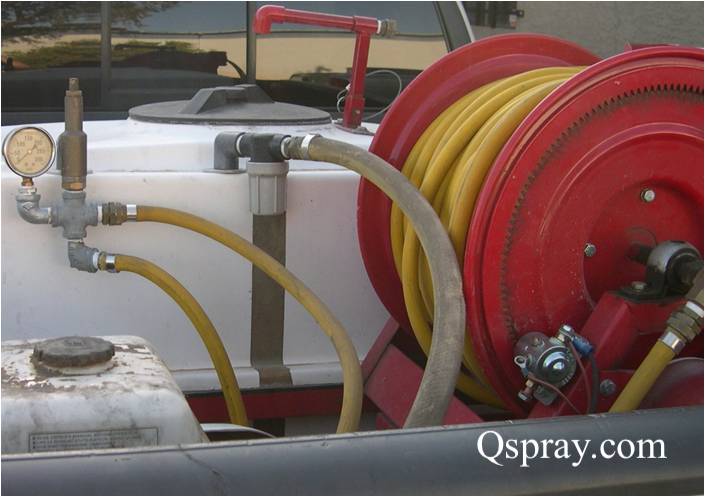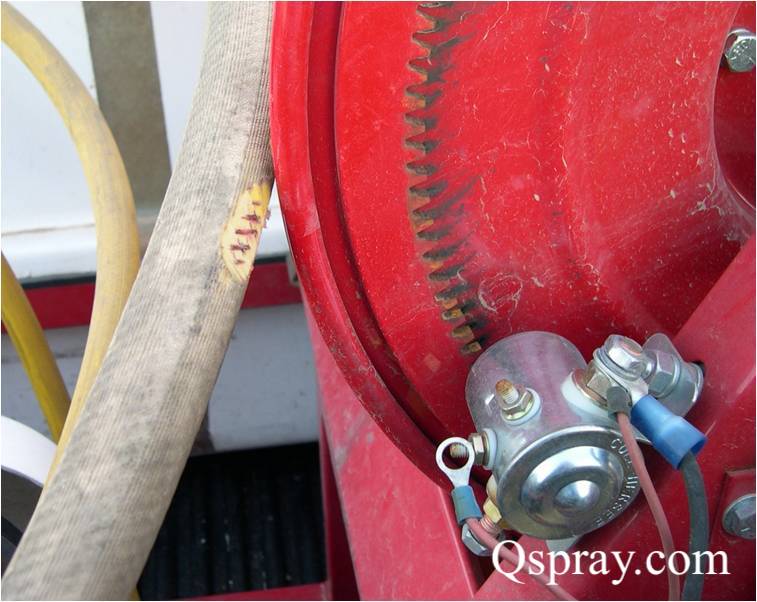Pest & Weed Control Power Sprayers - Anticipate Problems to Prevent Downtime
Posted by Andrew Greess on Jan 14, 2019
Are you (or your spray technicians) looking for and anticipating problems with your pest control sprayers? This can save you a lot of time and money. Here's an actual example:
Customer brought their pest control power sprayer in for us to service the pump. One of our mechanics immediately noticed something wasn't right.
One of the supply hoses was way too close to the hose reel.
Upon closer inspection, we immediately saw a problem. If this was your weed control sprayer, would you have noticed it? Would your techs have noticed it? The tech who was operating this vehicle sure didn't.
Here is what we saw:
The sprayer was badly designed (editor's note: by another company, NOT Qspray). so that one of the supply hoses was so close the the hose reel that the reel disc was cutting into the hose. It was only a matter of time before this hose sprung a leak, costing the company down time, money and missed appointments.
The key point here is that Pest Control & Landscape Company owners and managers need to make sure their spray techs are looking at their equipment and anticipating problems. It doesn't matter whether this was a weed control power sprayer or whether your company uses power sprayers.
THE PRINCIPLE APPLIES TO ALL TYPES OF EQUIPMENT & ALL TECHNICIANS.
Any owner or user of pest control or landscape equipment needs to have some fundamental understanding of how it works and needs to periodically check their equipment to find and anticipate problems.
In this specific case, the reel would have worn through the hose. Because it was a suction hose not a pressure hose, only a little bit of chemical would have leaked out. The bigger issue is that the pump would be sucking air and the technician would be out of business until the hose was replaced. By the time the tech drove to a repair shop and got the hose replaced, he would have missed a couple of hours of work and probably a few stops. If the problem occurred during peak season, he might have had to wait at the repair shop for an open bay, compounding the cost to the company.
Train your technicians so they know how the equipment works and how to spot potential problems. It will save you a lot of time and money.
Comments?



